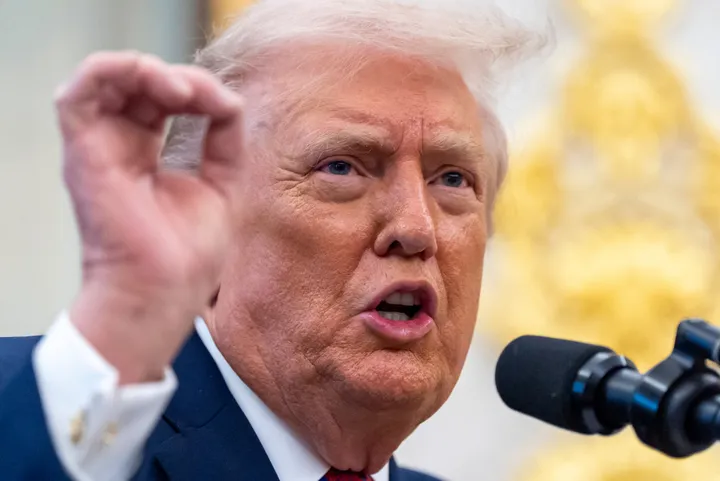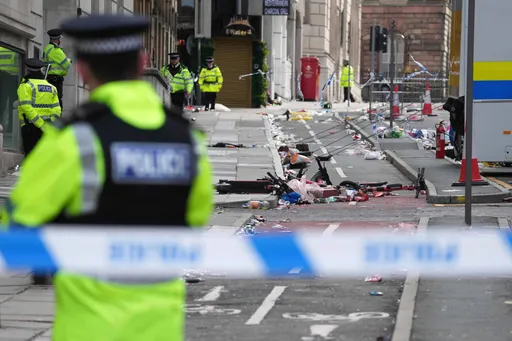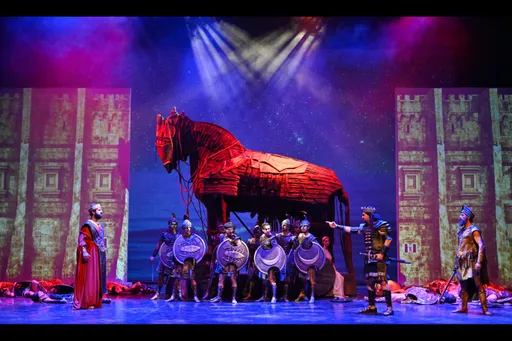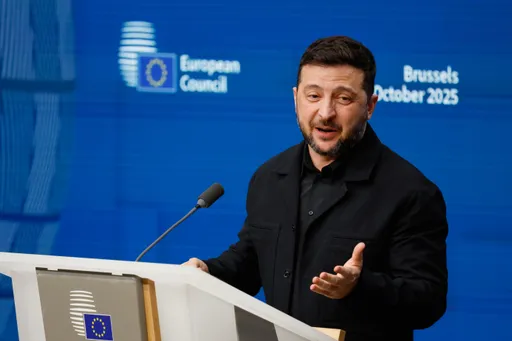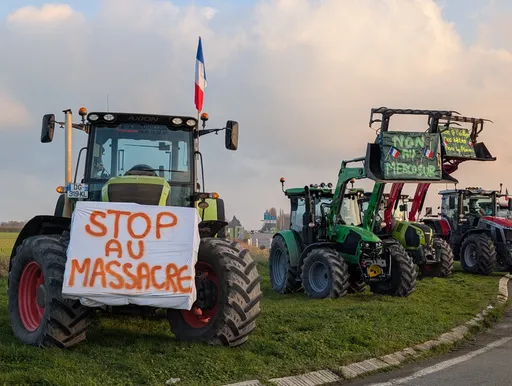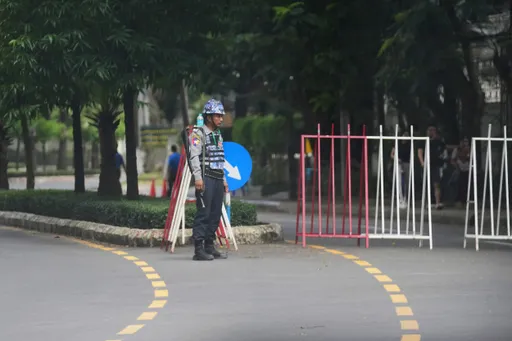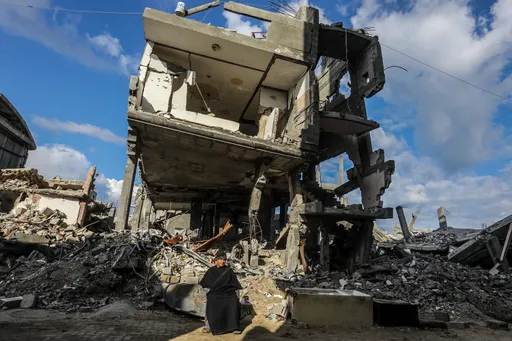On May 16, a peaceful gathering was arranged in front of the Al Kalouti Mosque in Amman, Jordan, in support of the Palestinian people currently and continiously confronted with indiscriminate violence by the Zionist power. This group was not as large as the previous march held downtown by the Husseini Mosque this past Friday, where close to 2,000 people gathered to express the same sentiment.
Despite having all necessary permissions for this demonstration, upon arrival I was quite surprised to find more police patrol than participants. This location is in close proximity to the Israeli embassy in Jordan as well as the residence of the ambassador himself. One of the purposes of this demonstration was to put pressure on the current government to take action on the events unfolding in real-time in Palestine.
As Jordan is the custodian of Jerusalem, the Kingdom has made numerous statements in support of the Palestinian people across all territories - but whether this translated into any benefit of the Jerusalemites is arguable.
These popular protests are rising up all over the globe, however, some risk more than others appearing in these demonstrations. The events that unfolded in Amman were quite shocking; around 45 minutes after gathering, the policing forces (gendarmerie and local police) began to disperse the crowd. The forces did not have any riot gear or tear gas but wore balaclavas and held batons. Forming two rows of officers, they began to push the crowd onto the street.
Yasmeen Shukr, 27, recounts: “From what I saw, there was no reason for escalation. We were peacefully chanting in a plot of empty land near the consulate when gendarmerie forces began to violently and brutally dispel the demonstration. They first cleared a large circle, calling for the women to move to the back. In less than five minutes, they began a stampede.”
It quickly escalated with police assaulting men and women, from all sides of the demonstration. They used brute force, kicking and punching, in addition to using batons on people indiscriminately. The scene was purely chaotic, the assault on the crowd quick and unanticipated. As noted above, there has already been a number of protests that went by without incident; as such the panic of the crowd was, quite literally, palpable.
Yasmeen continues: “Three men fell on me at once, about five in total when I started kicking them off me and screaming. I’m assuming the men heard my voice and our friend, also a man, saw my friend and I falling, and miraculously managed to clear some sort of circle for us to avoid being crushed. I saw Nay’s elbow sticking out from under five men, her face straight in the street and began kicking one of the men off her. Another was falling on her but the men managed to hold him; our friend and I picked Nay by her elbows and dragged her out - the men made a clearing for us to run through.”
In the span of ten minutes, the police forces rushed the crowd three times with so much force that it threw people off their feet. Moving to the sidelines, we witnessed more forces accumulating at all exit points towards the main crowd.
We intervened in a group of around ten officers about to beat a young boy, no more than 12-years-old, for shouting profanity at them - it seemed like a personal offence as the group behaved more like a gang than security forces.
“Women were being beaten, men arrested, children lost from their families in the chaos,” Yasmeen adds.
Videos circulated on social media show clips of some of this violence, in addition to news that a number of individuals were arrested and awaiting charges. One of the them was Hiba Abu Taha, a journalist from MyKali Magazine, whose arrest was accompanied by a short clip of her being assaulted by masked officers and seemingly attempting to destroy her phone. About 50 people were arrested.
As an attendee of these peaceful protests, it is even more shocking to see local news outlets reporting on the support towards the security forces during the demonstration. Yesterday, the crowd was significantly thinner due to the prior day’s events. While videos circulated widely online, there was no local coverage of this violence.
My issue, however, is not necessarily the shock of police brutality, particularly in this region, but the way this brutality arose and its assumed premeditation. Many officers had their faces hidden in full covering as opposed to Covid-19 face masks, and had removed their names from the velcro on their uniform shirts as if in anticipation of violence.
The question that we must pose is why, in this context, did they feel so empowered to assault a crowd chanting, “A united nation as taught by King Hussein.” The forces chose to protect the Zionist entity who the people have clearly stated their absolute disdain for by reiterating calls to expel the embassy and it’s employees from the country.
It is cause for concern when a neighbour of Palestine, one where a large majority are in support of or are part of the Palestinian diaspora community, would behave in the exact same way as the occupation would.
Without support from Arab governments, particularly neighbours that are subject to biased security agreements and who have been historically occupied, leaves the Arab states in a weaker political position. They are unable to show unity at this moment; instead, we have seen neutrality instead of outrage from these governments.
Areas in Jordan, Lebanon, and Syria are subject to Israeli mandates; as such, the freedom of the Palestinians is, in fact, freedom for the Levant.




